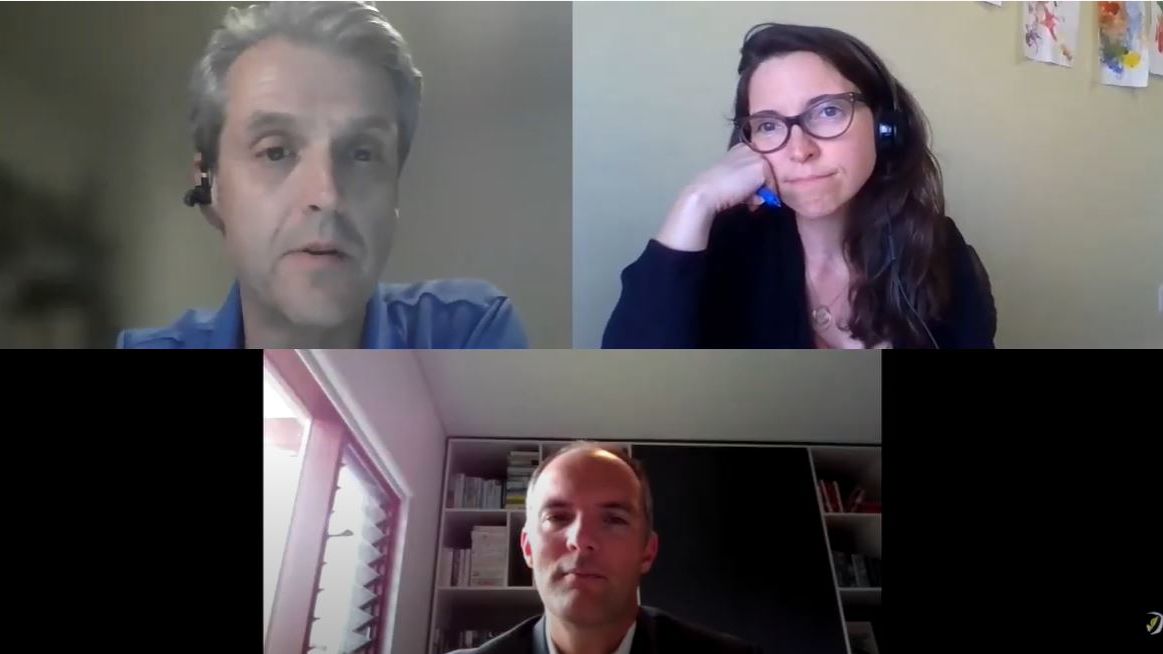Project News ·
ReefChat: Valuing our coral reefs
The Resilient Reefs Initiative is a global program working with five World Heritage coral reefs, and the communities that depend on them, to build capacity and implement solutions to adapt to climate change and local threats. In this ReefChat, we take a closer look at the ecosystem services that coral reefs provide coastal communities, and feature recent work of the Initiative that aims to increase understanding of the value of reefs in the communities where we partner.

Hosted by Amy Armstrong, Director of the Resilient Reefs Initiative, Amy is joined by Mark Way from The Nature Conservancy and Matt Judkins from Deloitte Access Economics to discuss the importance of valuing our natural ecosystems, in particular how we can better value coral reefs and increase the understanding of policy and decision makers to turn this awareness into investment.
Mark leads The Nature Conservancy’s Global Climate Risk and Resilience team. His work focuses on protecting people, their livelihoods and their communities from severe weather impacts and climate change by building resilience using natural infrastructure. Prior to joining the Conservancy in 2016, Mark led Swiss Re's sustainability activities in the Americas. In both his current and previous role, climate adaptation has been the major topic area focusing on managing both risk and building resilience.
Matt leads the Deloitte Access Economic practice in Western Australia and is the lead partner for Deloitte's WA Government team. Matt has extensive experience in business strategy, commercial and financial advisory and economic analysis. He has worked across the energy and resources, infrastructure, utilities and public sectors in Australia, Asia, Europe and Africa. Prior to Deloitte, Matt held roles with McKinsey & Company, Saha International and Arthur Andersen.
#ReefChat Resources
Amy speaks to the recent Resilient Reefs Solution Exchange held in 2020, where more than 100 participants came together to support two World Heritage sites in preparing for natural disasters that are becoming increasingly prevalent as a result of climate change.
Matt shares his recent work leading the Economic Contribution Study for the Ningaloo Coast. This study by Deloitte Access Economics and Department of Biodiversity, Conservation and Attractions has revealed the World Heritage Ningaloo Coast generates more than 1,000 jobs and contributes an additional $110 million to the Western Australian economy annually (based on 2018-2019 financial year).
And Mark shares the story of the Brigade, an assortment of tour guides, diving instructors, park rangers, fishermen and researchers who through an innovative insurance policy took action as the 'paramedics' of the reef after Hurricane Delta hit Puerto Morelos, Mexico.

Economic contribution of Ningaloo
Resilient Reefs
Pioneered by the Great Barrier Reef Foundation, Resilient Reefs is a collaboration with the UNESCO World Heritage Marine Programme, The Nature Conservancy’s Reef Resilience Network, Columbia University’s Center for Resilient Cities and Landscapes, Resilient Cities Catalyst and AECOM. The program is enabled by the BHP Foundation. These global partners each bring unique expertise and support to the World Heritage coral reef sites, as well as help to share the lessons and learnings from the Initiative with Reef communities around the world.
#Related

Project News ·
Community at the forefront of Reef water quality protection

Project News ·


